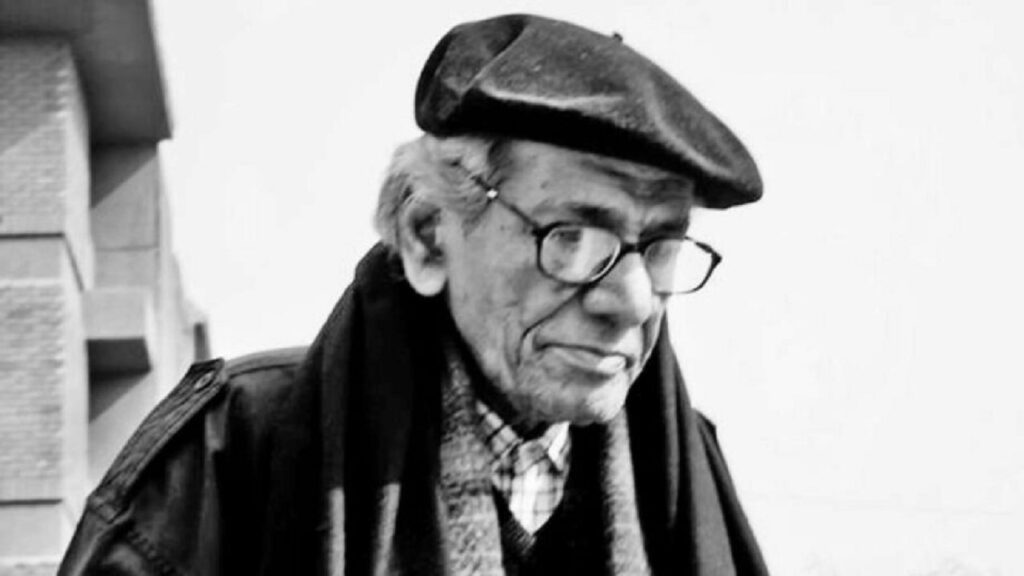A theatre person with a difference. Director, actor, playwright, poet—all rolled into one. A lively conversationalist with a sonorous voice and a wide range of interests.
Habib Tanvir, one of India’s best-known playwrights and theatre directors, was born Habib Ahmed Khan on 1 September 1923 in Raipur in present-day Chhattisgarh. Tanvir’s first success was Agra Bazar (1954), in which he brought urban middle-class actors together with uneducated folk artists for the first time on the Indian stage.
Tanvir grew up in Raipur and moved to Bombay (now Mumbai) in 1945 to join the egalitarian groups the Indian People’s Theatre Association and the Progressive Writers’ Association. Than later Tanvir Founded a Naya Theatre company in 1959 which was completely devoted to folk performance. To allow his uneducated actors to work naturally, Tanvir used the Chhattisgarh dialect rather than formal Hindi in his plays and worked from improvisations rather than formal scripts.
Tanvir drew from both Brecht and indigenous theatre and was also known for his incorporation of folk songs, poems, and music into his plays, exemplified in his much-admired Charandas Chor (1974). He also acted in several movies, notably Gandhi (1982), and was a member (1972–78) of India’s Parliament.
His productions successfully harnessed the skills, energies, and conventions of traditional or folk performance and made them relevant to contemporary concerns and a secular and democratic worldview. The result was that his theatre was as incisive as it was Entertaining.
He also had a name for framing the universal instinct in every story within the hopes and fears of the local context. And so The Good Woman of Schezwan became Shajapur Ka Shantibai and Shakespeare’s songs in A Midsummer Night’s Dream metamorphosed into folk melodies in Kamdeo Ka Apna, Basant Ritu Ka Sapna.

